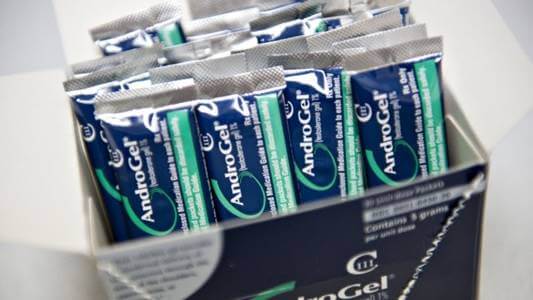Study Finds Testosterone Therapy Increases Aggression, “Threat Response”
In addition to an increased risk of heart problems, users of low T drugs may also put themselves at risk for aggressive behavior.
As concerns continue to mount over the risk of cardiovascular side effects from testosterone replacement therapy, a new study suggests that users of testosterone drugs may be more likely to experience increased aggression and respond aggressively to perceived threats. In the study, published this month in the medical journal Biological Psychiatry, researchers from Wayne State University in Michigan explored the side effects of testosterone replacement therapy (TRT), examining what effects the controversial medications may have on the brain. In their conclusion, the researchers noted that AndroGel and other popular testosterone drugs had a significant effect on aggression levels among men using the medications to increase their levels of testosterone.
Adverse Effects of Testosterone Therapy
In the testosterone therapy study, researchers examined 16 healthy young men and used drugs to lower their testosterone levels, thus establishing a baseline. Half of the study participants were then administered a placebo, while the other half were given enough testosterone drugs to put them into the normal ranges for men their age. All of the men were then given a face-matching task to perform while undergoing an MRI to track their brain activity. According to the researchers, when men taking testosterone drugs were shown a picture of an angry face, certain parts of the brain reacted strongly, while these same effects on the brain were not observed among the men taking a placebo.
Link Between TRT and Aggression
This testosterone therapy study comes as mounting research has established a risk of potentially life-threatening heart problems associated with low testosterone drugs, suggesting that many men may be unnecessarily exposing themselves to an increased risk of stroke, heart attack, blood clots and sudden death. According to these new findings, men taking low T treatments may also be putting themselves at risk for aggressive behavior. “We were able to show for the first time that increasing levels of testosterone within the normal physiological range can have a profound effect on brain circuits that are involved in threat-processing and human aggression,” the researchers wrote.
Low T Treatments Not Medically Necessary
In spite of concerns about the side effects of low T treatments, more men are undergoing testosterone replacement therapy now than ever before. In January 2014, a study published in the Journal of Clinical Endocrinology & Metabolism found that many low T medications, like AndroGel, are not medically necessary, and are prescribed to men with normal testosterone levels. Despite the fact that testosterone replacement therapy is only approved to treat low testosterone levels associated with a medical condition known as hypogonadism, critics have argued that many testosterone drugs are now prescribed to men suffering from fatigue, decreased sex drive, and other signs of the natural aging process.
Contact a Testosterone Therapy Lawyer Today
According to a November 2013 study published in the Journal of the American Medical Association, side effects of testosterone replacement therapy may increase the risk of stroke, heart attack and death among older men with certain pre-existing heart conditions. Another study published in the journal PLOSOne in January 2014, found that testosterone medications may double the risk of heart attack for younger men with heart disease, and for men older than 65 with no pre-existing heart problems. If you believe you have been adversely affected by side effects of TRT, our consumer advocates at the Leading Justice can help put you in touch with an attorney who has experience handling testosterone drug injury claims.
[box type=”note” align=”aligncenter” ]Source: http://www.biologicalpsychiatryjournal.com/article/S0006-3223%2814%2900055-9/abstract[/box]


